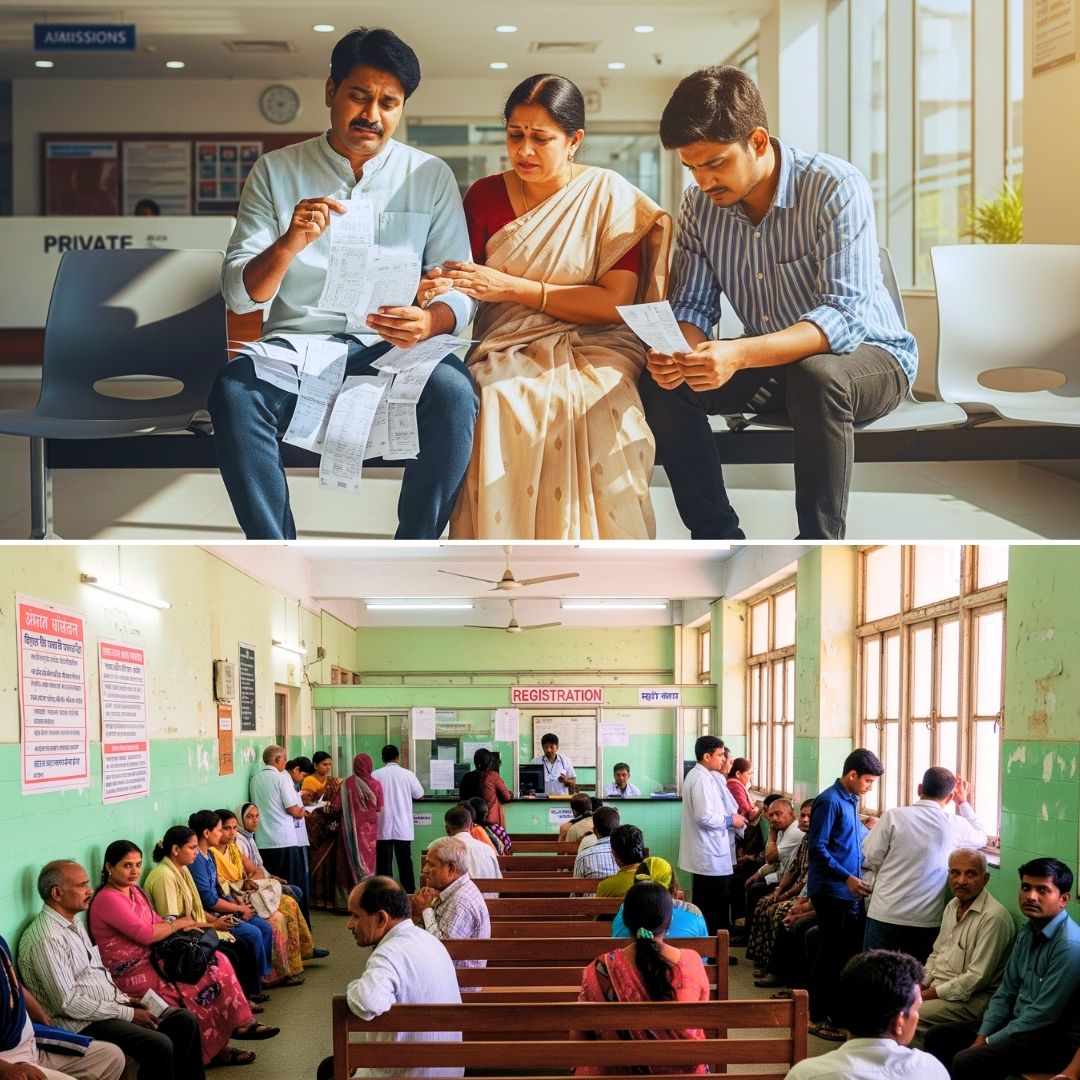Each year, about 39 million Indians face deep poverty due to catastrophic medical bills, largely because of insufficient government healthcare spending and the growth of profit-driven private hospitals, says an IITian in a now viral post. This stark reality was recently highlighted by Ram G Vallath, an IIT alumnus and growth coach, in a detailed critique on LinkedIn.
Vallath focused on how private equity firms exploit India’s underfunded public health system, driving up medical costs through unnecessary procedures and fear mongering. Officials acknowledge the challenges but reforms lag behind. Experts call for increased public investment and stricter oversight of private healthcare providers.
Healthcare Debt and Profit Motives Drive Millions Into Poverty
Ram G Vallath outlined that India spends one of the lowest proportions of GDP on public healthcare globally, resulting in overcrowded and under-resourced government hospitals. Facing poor quality care, many patients turn to private hospitals where private equity firms have invested heavily, creating a lucrative but exploitative business environment.
“In India, 39 million people get pushed annually into deep poverty due to catastrophic health expenditure. At the same time, India has one of the lowest Government spends on healthcare in the world. Hence, public health system, which can provide affordable care, has neither the quality and resources, nor the breadth to cater to the healthcare needs of the nation,” writes Vallath.
Vallath explains that “steep revenue targets and fear mongering” by doctors form part of the profit model, pushing patients, especially poor families, to incur huge debts or sell assets like land and jewellery. This systemic failure traps many families in medical debt for generations, deepening socio-economic inequalities. “The rich and insured may survive, but for the poor, healthcare costs are catastrophic,” Vallath added.
Background: A Deepening Public Health Emergency
India’s healthcare system is battling multiple challenges such as low public investment, inadequate personnel, and rising chronic disease burdens. A recent GOQii report shows 71% of Indians feel medical expenses have significantly increased and 19% have delayed or skipped treatment due to costs, even among the insured.
The out-of-pocket spending is disproportionately borne by the poor, resulting in millions avoiding care or falling below the poverty line after treatment. The migration of talented doctors to better-paying corporate hospitals is further weakening public healthcare. Multiple stakeholders emphasize the urgent need for systemic reforms, including better insurance coverage that addresses hidden costs and a focus on preventive healthcare.
The Logical Indian’s Perspective
The Logical Indian believes that healthcare must be recognised as a fundamental right, accessible affordably to all sections of society. While government investments are crucial, they must be coupled with transparent regulation to curtail profit-driven exploitation in private healthcare. Compassion, ethical medical practices, and preventive care should be priorities to build a resilient health system.
The Logical Indian urges policymakers and society to put patients’ welfare above profits and foster a healthcare culture grounded in equity and dignity.












